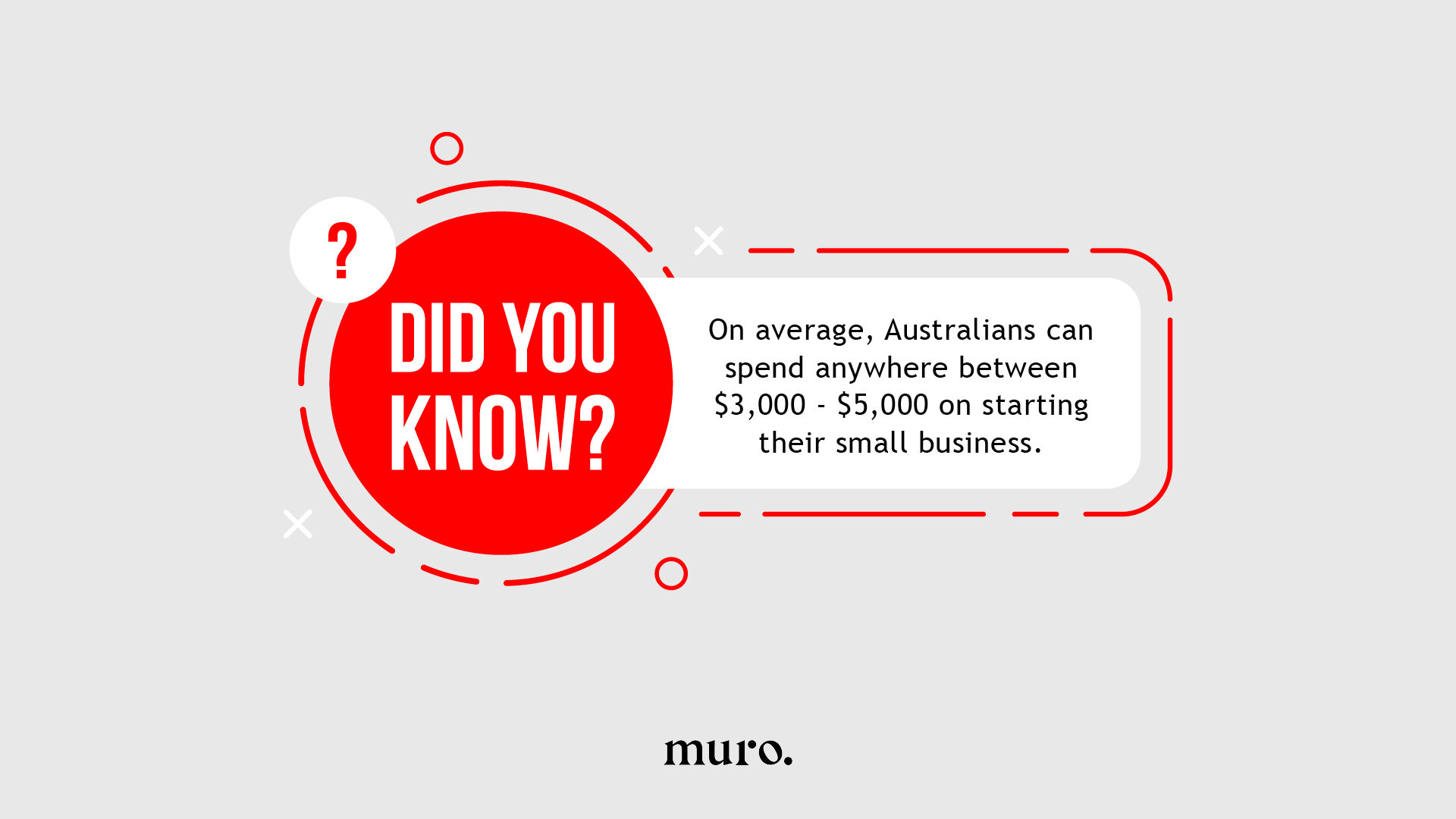While you may be full of bright commerce ideas, how much does it cost to start a business? Like most things, preparation is key - and knowledge is power.
The sad reality of trading in Australia is that it truly is a jungle out there. According to the Australia Bureau of Statistics, more than 60% of small businesses cease operations entirely within their first three years of trading. One of the most common reasons that they fail is due to a lack of cash available to meet their expenses, particularly within the first six to twelve months - so what can you do to plan ahead? The good news is that it’s simply a matter of planning ahead.
How Much Does It Cost To Start A Business From Scratch?
While minimising your start up costs is a smart way to allow for greater cash flow in the early days, it’s also important to cover your bases in terms of ongoing costs and the basics of operation. On average, Australians can spend anywhere between $3,000 - $5,000 on starting their small business, with some dropping as much as $10, 000 depending on your sector.
Regardless of which industry you choose to trade in, there’s always a few key points that need to be considered if you want to know how much it costs to start a business in Australia, and ultimately it boils down to your costs vs your revenue potential. So what are the basic start up costs that you need to factor in?
The Basics - Before you can sell a thing, there’s a few core essentials that need to be taken care of. These generally include setting up an ABN, deciding on your business name, registering for GST, plus organising your website and Google Business listing.
Your Assets - Are you going to be a product or service based business? If it's a product, you’ll need to consider how much stock needs to be ready to go or pre purchased. If it’s service, you may need to think about things like tools or a company vehicle.
Commercial Space - While rent is classed as an ongoing expense, you may need to pay upfront for things like deposits, legal fees, or even an office or commercial fit out of a venue in order for you to start trading - even if it’s for a home office.
While these costs won’t necessarily repeat in the near future, your business will incur other operational costs on an ongoing basis - and you need to factor them all into your overall business plan. Running costs are usually determined to be the expenses that you will incur regardless of whether you make a sale or not, and these often include:
Rent
Insurance
Advertising
Power and utilities
Phone and internet
Website hosting
Equipment maintenance
Registrations and legal compliance
Wages and salaries
Shipping and postage
Loan repayments
Once you have a solid idea as to the start up and ongoing costs of running your business, it’s time to calculate it’s potential revenue, and ultimately profitability.
Calculating The Potential Profitability Of Your Business
While it’s important to aim higher when it comes to predicting the outgoings of your business to ensure that there’s no nasty surprises along the way, the same can’t be said for determining its potential revenue - so be realistic. In order to work out how much you can actually expect to make from your new business venture, consider the following:
Potential Customers Per Day - If you’re in e-commerce, don’t expect 500 visitors to your website within your first week of trading. Try to consider your existing customers (if any), along with realistic figures from both organic and paid marketing efforts.
Your Trading Hours - Are you expecting just as many purchases on a Sunday morning as opposed to a Thursday night? Take note of your key trading periods if you can, and pivot your opening hours and wages accordingly to make the most of everyone’s time.
Income Per Customer - How much are you expecting the average customer to spend? Although this usually depends on your industry, product or service, try to calculate in advance as to what the market will (or won’t) accept in terms of pricing.
Costs Per Customer - Although not applicable for all traders, how much does it cost to produce your product or service for each customer? While service based businesses may have little to no costs per customer, don’t forget about all of your above outgoing expenses when trading.
A Professional Insight On Starting A Business
If understanding your finances isn’t your strong point, then it may be reassuring to know that you’re not alone. In fact, many businesses (big and small) enlist the services of an accountant in order to free up their time while knowing that their financial obligations are already taken care of by the professionals.
What you choose to invest in or shy away from as a business owner can have a domino effect that ripples through your entire team - so are you confident in your financial choices? In order to give yourself the best possible shot at success, why not download our free “Start Up Cost Calculator” to see if you’re on the right track or not.
Ultimately, the team at Muro Accounting believe that every business owner is an entrepreneur. However, accounting does not discriminate - finances break down barriers and are not territorial. If you would like to take a deeper look into your finances, please get in touch with us at Muro today to ensure that you’re on the right path for success.

